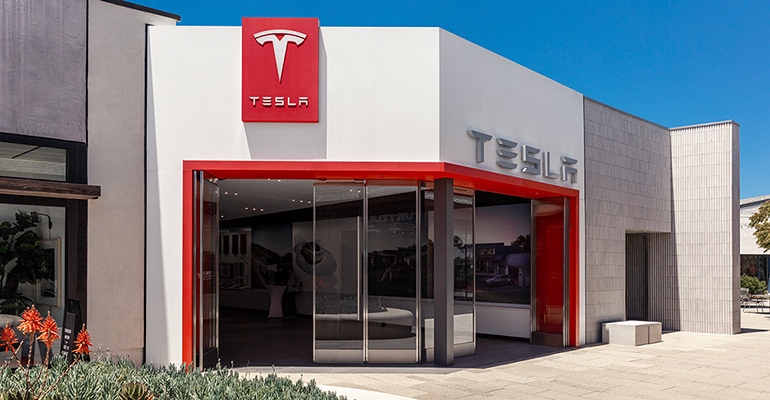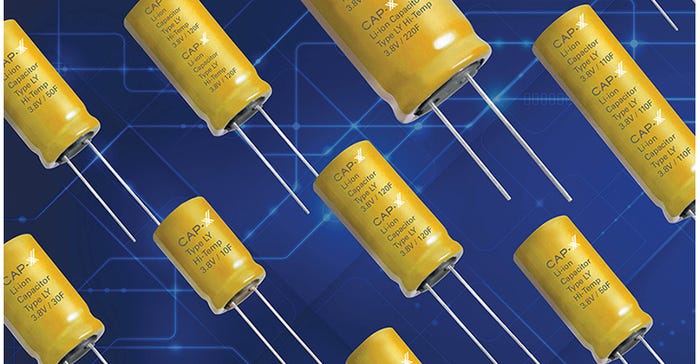Tesla Sues Cap-XX Over EV Battery Tech
Tesla says the Australian company is infringing on supercapacitor design patents—the same charge Cap-XX first made against Tesla in 2019.

Reuters and other news outlets report that Tesla sued Australian company Cap-XX in a Texas federal court on July 14. The lawsuit alleges that Cap-XX's supercapacitors, which are used to store energy in electric vehicle batteries, violate two US patents owned by Maxwell Technologies, a subsidiary of Tesla.
This seems to fly in the face of Tesla CEO Elon Musk’s 2014 pledge that “Tesla will not initiate patent lawsuits against anyone who, in good faith, wants to use our technology.”
That pledge is part of a blog post (still accessible on the company website) in which Musk also wrote, “If we clear a path to the creation of compelling electric vehicles, but then lay intellectual property landmines behind us to inhibit others, we are acting in a manner contrary to that goal.”
Tit for tat?
So, why the change? The lawsuit appears to be a tit-for-tat response to a patent dispute filed by Cap-XX against Maxwell Technologies back in 2019—the same year Maxwell was acquired by Tesla. (Tesla later sold Maxwell to South Korea-based UCAP Power—but held onto the patents for certain energy-storage technologies, reports drive.com)

The Cap-XX lawsuit makes the same claim that Tesla makes: That Cap-XX—not Maxwell then nor Tesla now—has the rights to the technology behind the electrodes used in those supercapacitors.
The Cap-XX lawsuit is still ongoing in Delaware—in fact, only this morning (July 18), Alliance News shared the company’s announcement that the trial date for Cap-XX’s own patent-infringement suit is being delayed from July 24 to December 11, “due to the death of an expert witness for Maxwell.”
While in Texas, Tesla stated in court filings (as quoted by Reuters), “Maxwell has a history of innovation that has resulted in its own patents, now assigned to Tesla, and thus Tesla brings this suit against Cap-XX to protect its intellectual property rights.”
Tesla’s busy week
Tesla’s having an eventful week: On Saturday, July 15, the company tweeted that, four years after revealing the prototype, its first Cybertruck has come off the line at the company’s Austin, TX plant.
Then on Monday, the 17th, in one of the largest shareholder settlements of its nature, Tesla Inc's directors agreed to return $735 million to the company in response to allegations that the directors excessively overpaid themselves. The news was reported by The Guardian and other sources.
The resolution effectively puts an end to a lawsuit filed in 2020 by a retirement fund, which held Tesla stock and raised concerns regarding stock options granted to the company's directors beginning in June 2017.
“The directors were accused of awarding themselves unfair and excessive compensation in the form of about 11m stock options from 2017 to 2020 that allegedly grossly exceeded norms for a corporate board,” reports The Guardian, which also noted that this settlement does not have any impact on Elon Musk's $56 billion compensation package. Shareholders have contested this package in a separate lawsuit that underwent a trial last year. A ruling in the Musk case is anticipated to be delivered soon.
On Wednesday, July 19th, Tesla will finish the first half of the week by posting its financial results for the second quarter of 2023. At that time, Tesla will issue a brief advisory containing a link to the Q2 2023 update, which will be available on Tesla’s Investor Relations website. Tesla management will hold a live question and answer webcast that day at 4:30 p.m. Central Time (5:30 p.m. Eastern Time) to discuss the Company’s financial and business results and outlook.
About the Author(s)
You May Also Like





